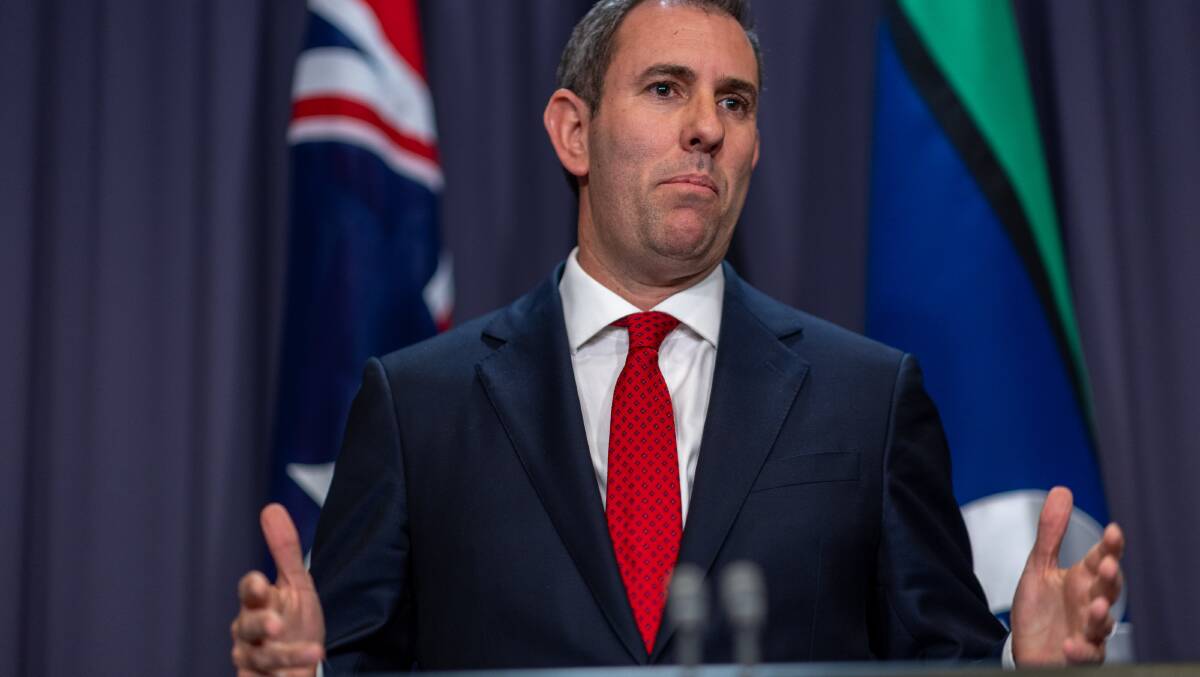The federal government is "not contemplating or considering" changes to capital gains tax and negative gearing arrangements but is open to further measures aimed at easing living-cost pressures, Treasurer Jim Chalmers says.
As the government continues to push the merits of its changes to the stage three tax cuts, Dr Chalmers rejected suggestions Labor may also revisit the capital gains tax and negative gearing proposals it took to the 2019 election.
"We're not contemplating or considering resurrecting the policies that we took to the 2019 election," the Treasurer said.
"We have changed our view on income tax cuts because we found a better way to give a bigger tax cut [to] more people to help with the cost of living."
The government has come under sustained attack over the proposed tax changes from the opposition, which it has labelled a "shocking betrayal".
Liberal leader Peter Dutton said the boos directed at Prime Minister Anthony Albanese by tennis fans at the Australian Open on Sunday night reflected the anger many felt at the government's decision to dump the tax cuts it took to the last election.
"I think a lot of people are angry when the PM looks him in the eye and tells him something 100 times and then ends up lying about it. I think you pay a price for that," Mr Dutton told Tasmanian radio station LAFM.
But Dr Chalmers said the government had been upfront about the decision and the reasons for it.
"We [are not] pretending that we didn't say the things that we have said in recent years," the Treasurer said. "We know that that's politically contentious and we're not pretending otherwise."
Dr Chalmers said the government's tax changes were "a far superior way" of returning bracket creep and delivering cost-of-living relief to more people.

"The reason that we've been so upfront about the rationale for this change in position is because it became so clear to us over the course of the summer that there was a much more effective way of delivering more relief to more people to help with the cost of living," he said.
The government faces having to do deals with the Greens and crossbench MPs to get its tax changes passed if the opposition carries through on its threat to vote against the changes.
Dr Chalmers said the government intended to legislate its tax changes as is and would not be drawn on other possible measures such as increased JobSeeker or rent assistance payments.
But he did not rule out further measures.
"As we move between now and the May budget, there will be a range of ideas about what other cost-of-living relief we may be able to provide," he said. "They would need to be responsible. They need to be affordable. They need to be suited to the economic conditions."
Despite the substantial size of the tax cuts, which the government estimates will benefit 13.6 million taxpayers, Commonwealth Bank analysis shows the share of income going on tax will remain historically high.
CBA head of Australian economics Gareth Aird said the proportion of household income going on tax has reached a record 17.7 per cent and will rise even further to around 19 per cent by mid-year.
Mr Aird said that even when the proposed tax cuts come in, the share will still be a "very high" 18 per cent.
"Put another way, households will still be handing over a much higher proportion of their income to the government than they were in 2022 and the years prior," he said, adding that this will weigh on spending and help dampen any inflationary effect.
Overall, the tax changes "are not enough to shift the dial for economic growth, the labour market or inflation", the economist said.
Australian Bureau of Statistics figures due out on Wednesday are tipped to show inflation continued to slow in the December quarter, with a consensus of economists forecasting a lift of 0.8 per cent for the three months, sufficient to slow the annual rate to 4.3 per cent.
If inflation continues to moderate as many expect, it is considered unlikely that the Reserve Bank of Australia will raise the official cash rate when it meets for the first time in 2024 on February 5 and 6.
Markets reckon interest rates have peaked and Mr Aird said it was possible the central bank will deliver three rate cuts late this year and a further three in early 2025, taking the cash rate down from 4.35 to 2.85 per cent.


